
Traveling Is Hard on Your Horse
Traveling is harder on your horse than you think. Tired, stressed horses are more likely to hurt themselves in the...
» View Article
Traveling is harder on your horse than you think. Tired, stressed horses are more likely to hurt themselves in the...
» View Article
Click here to download a free copy of the horse body condition score sheet. Horse body condition scoring is an...
» View Video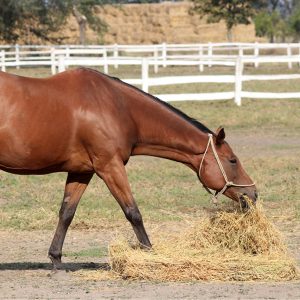
In his natural state, your horse would spend 16 to 17 hours each day roaming around and grazing on a...
» View Article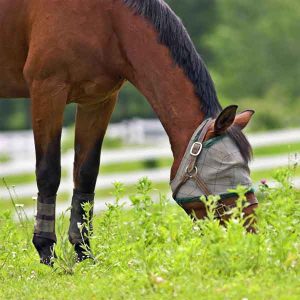
Summer seasonal recurrent dermatitis (SSRD), commonly called sweet itch or summer itch, is caused by a horse’s allergic reaction to...
» View Article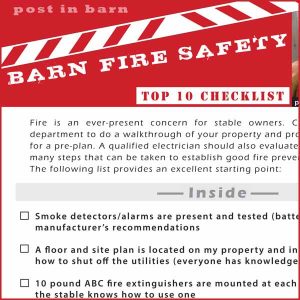
Fire is an ever-present concern for stable owners. Contact your local fire department to do a walk through of your property and provide recommendations for a pre-plan. A qualified electrician should also evaluate your facility.
» View Article
Studies reveal that horses are happiest when living outside with other horses. Researchers also noted benefits to the overall health...
» View Article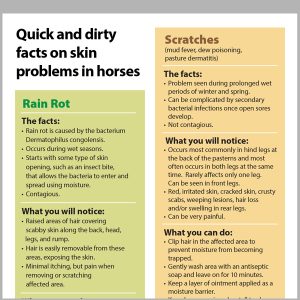
Rain Rot The facts: Rain rot is caused by the bacterium Dermatophilus congolensis. Occurs during wet seasons. Starts with some type of skin opening, such as an insect bite, that allows the bacteria to enter and spread using moisture. Contagious.
» View Article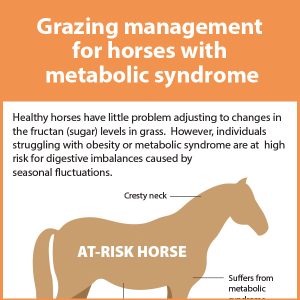
Healthy horses have little problem adjusting to changes in the fructan (sugar) levels in grass. However, individuals struggling with obesity or metabolic syndrome are at high risk for digestive imbalances caused by seasonal fluctuations.
» View Article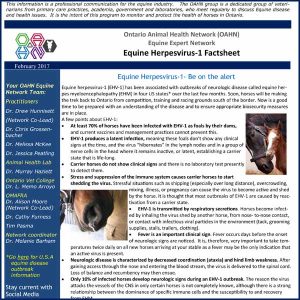
Click here, to learn more about Equine herpesvirus-1 (EHV-1). Article re-posted with kind permission by Equine Guelph: http://equineguelph.ca/index.php
» View Article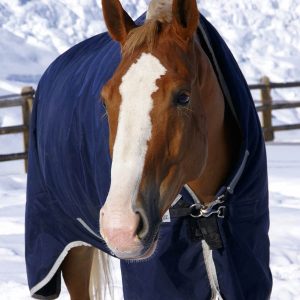
Article re-posted with kind permission by Equine Guelph: http://equineguelph.ca/index.php New ThermoRegulator Healthcare Tool launched by Equine Guelph Nature has provided horses...
» View Article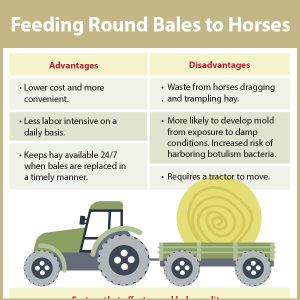
There is often a stigma attached to feeding round bales to horses, but managed well they can be a safe...
» View Article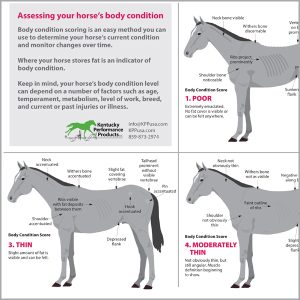
As the winter season approaches, it is time to evaluate your horse’s body condition score. It is important to make...
» View Article
How many calories are treats adding to your horse’s diet? Probably not many, if you feed them in moderation. Calorie...
» View Article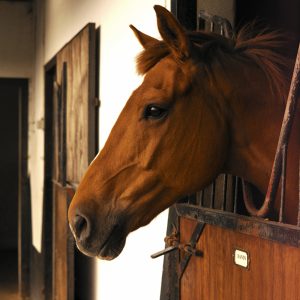
Article re-posted with kind permission by Equine Guelph: http://equineguelph.ca/index.php Guelph, ON, Sept. 27, 2016 – Equine Guelph has launched the new...
» View Article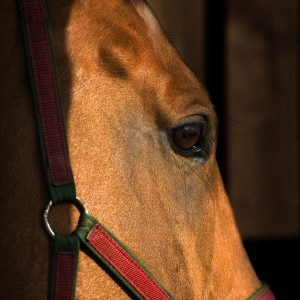
Article re-posted from Colorado State University College of Veterinary Medicine and Biomedical Sciences By Kristen Browning-Blas Late summer is peak...
» View Article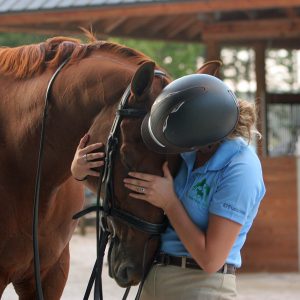
How many times have you heard the statement, “Chestnuts are crazy!” Researchers in Australia have taken the first steps to...
» View Article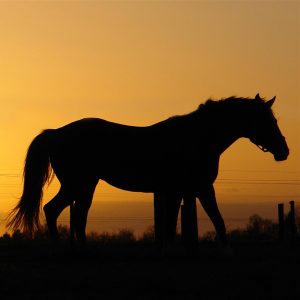
It is time to restock your horse’s supplements. You need to order a couple online and pick up one locally...
» View Article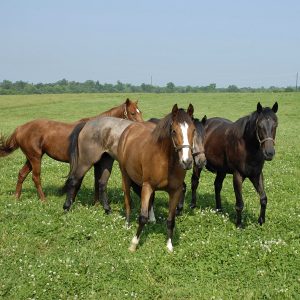
To most horse people, there is no better sight than a row of freshly bedded stalls, complete with a pile...
» View Article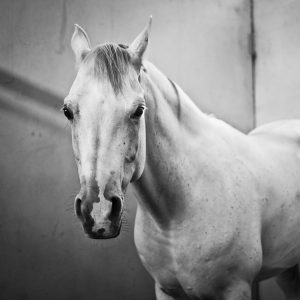
Knowing and noticing the signs of depression in your horse may alert you to illness, injury or stress that can...
» View Article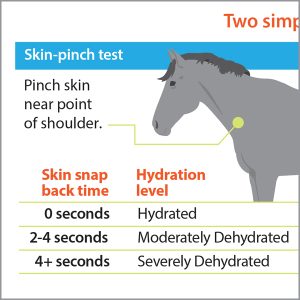
Sweating is the process horses use to cool themselves when their body temperature rises. When a horse sweats they...
» View Article
Thoroughbreds experience a lot of stress on their joints starting at an early age. Daily wear and tear, injuries, conformation, and aging all contribute to damage that causes joint inflammation and pain. There is probably not a Thoroughbred coming off the track that couldn’t benefit from a joint supplement.
» View Article
On the track, constant exercise, frequent shoeing, and the demands of racing can put a lot of stress on Thoroughbreds’ hooves. Bad feet can lead to other issues, such as sore backs and hocks.
» View Article
Thoroughbreds in training produce large amounts of free radicals that can damage cell membranes in the muscle. To defend against free radicals, horses use antioxidants like natural vitamin E and selenium to hunt the free radicals and render them harmless.
» View Article
If your Thoroughbred is coming straight from the track and has been in training, their metabolic rate will still be high due to intense training and elevated caloric intake. Once leaving the track, many Thoroughbreds benefit from a period of rest and relaxation, along with time to adjust to their new schedules. Their caloric requirements may decrease depending on the type of work involved in their new career, but this will not happen immediately.
» View Article
"*" indicates required fields